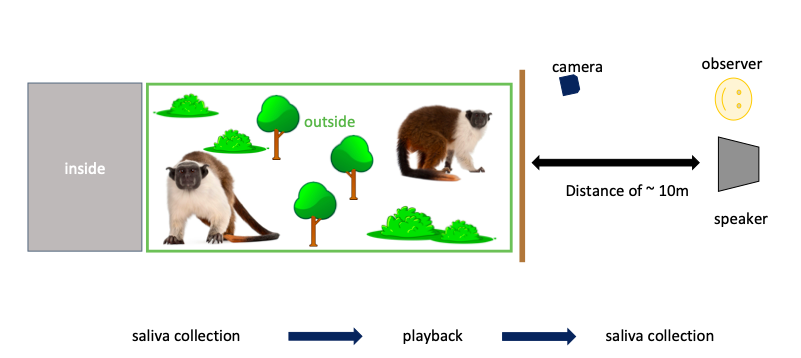Methods
Summary
The experiments consist of short playback sequences and will look at behaviour and salivary cortisol changes. Experiments will include about 16 different animals, four different sounds (with three repeats each) and is planned to be carried out for two to three weeks in September.
Behavioral data will be collected by observation from outside the enclosure and video recording will be used to aid in behavioral analysis.
Physiological data will be obtained by measuring cortisol in saliva, which provide an immediate stress response measurement. Saliva samples will be collected before and after each experiments to measure the change in cortisol levels. Samples will be collected with cotton buds, which the animals will be trained to chew on. Cotton buds will be stored in a test tube, centrifuged on the same day and then stored in the freezer on site.
Playback will consists of short playback sequences and played via speakers that will be installed in front of the enclosures. Sound level meter (SLM) will be used simultaneously to pay attention to the sound intensity.

Challenges
All experiments are standard paradigms in the field, and are of low ethical risk. Behavioral data collection as well as saliva collection is considered non-invasive. To decrease the interference of the animals and mitigate the risk of disturbance during saliva collection, animals will be previously trained to chew cotton buds through positive reinforcement training. In addition, each step of the study will have procedure protocols and mitigation measures put in place.
Ethical approval has been given by both Anglia Ruskin University and Durrell Wildlife Conservation Trust.
Protocols
This project has not yet shared any protocols.